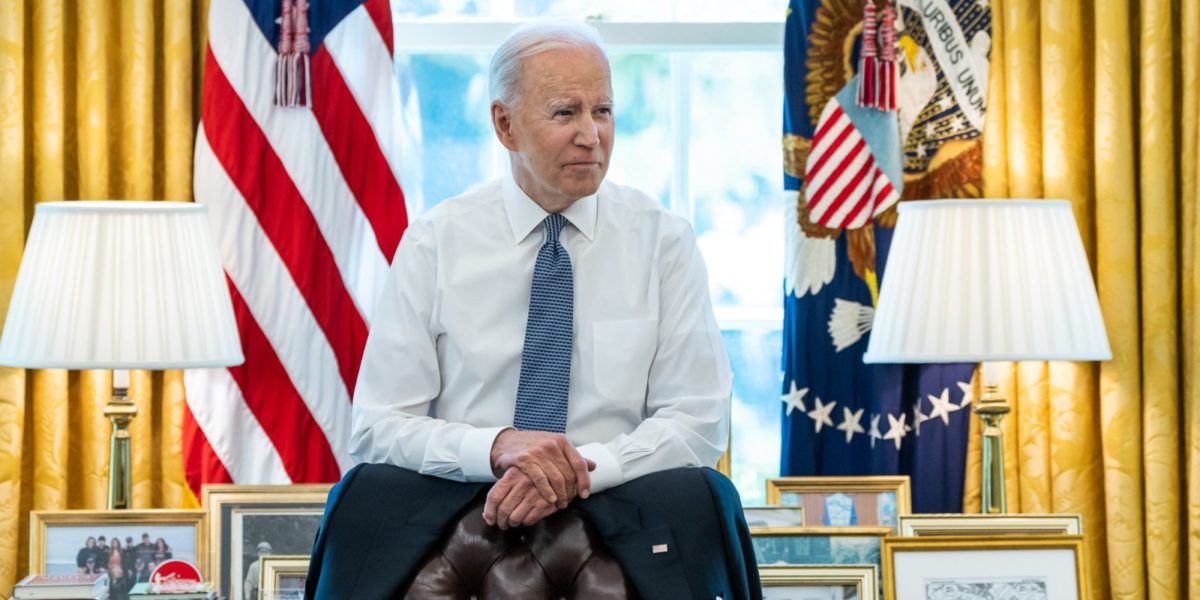CAIRO–There are dictators in the world who wield absolute power, and then there are U.S. Senators. Very few understand the power these 100 individuals hold in the world’s most powerful country. A single senator can effectively block any legislation. They don’t need to give a reason, and often do it entirely in secret. President Joe Biden, who was a senator for decades, knows this and also knows he needs the vote of every Democratic senator to pass critical appropriations during Congress’ current lame duck session.
Democratic Vermont Senator Patrick Leahy, the longest-serving senator currently in office, is retiring on January 2nd after 48 years. He’s been a champion of human rights, authoring the “Leahy Law” that denies U.S. aid to human rights abusing regimes. Senator Leahy or one of his colleagues could make a vital difference, and save lives, by blocking any bill in this session that shores up human rights abusing governments.
Take Egypt.
The U.S.-backed Egyptian dictator President Abdel Fattah El-Sisi rose to power after a military coup in 2013. His image is omnipresent in this sprawling capital city of 20 million, on buildings, lamp posts, and across the mass media, which is effectively controlled by the state. More than 60,000 political prisoners are locked up here; the true number is unknown. The most prominent is Alaa Abd El-Fattah, a writer, technologist and leading activist in the 2011 Arab Spring revolution that overthrew Egypt’s previous, long-standing, U.S.-backed dictator, Hosni Mubarak.
Yet Alaa, a dual Egyptian and British citizen, has been in prison for most of the last decade. His case received global attention when Egypt hosted COP27, the UN climate summit, in Sharm el-Sheikh. Alaa had been on hunger strike for more than 200 days. As COP27 began on November 6th, he escalated his protest, refusing to drink water altogether. Last week, Alaa told family members, in their first prison visit in a month, that he suffered a near-death experience that week. The German Chancellor, the French President, the British Prime Minister, and President Biden had all raised his case directly with Sisi. Prison authorities medically intervened secretly, to avoid the crisis his death during COP27 would have provoked.
The Sisi regime survives largely thanks to massive support from the United States. Egypt receives $1.3 billion annually in military aid, with an additional $125 million-plus in economic aid. Egypt has long been the second-highest recipient of U.S. foreign aid, after Israel. Its support is delivered through annual Congressional appropriations, subject to verifiable compliance with human rights standards. The U.S. State Department oversees this massive aid package with the Pentagon.
As part of the process, the State Department is required to produce a human rights report on Egypt. Its most recent 72-page litany of horrors includes extrajudicial killings, forced disappearances, torture and cruel, inhuman treatment; life-threatening prison conditions and arbitrary detention. The list goes on. While any rational reading of the report would result in the denial of aid, the State Department routinely invokes a “national security” waiver, authorizing the aid despite the rampant abuses.
“You train their police officers, their army officers,” Laila Soueif, Alaa’s mother, a math professor and renowned activist in her own right, told the Democracy Now! news hour during an interview in their family apartment in Cairo. “This is a U.S. operation. The helicopters they use to track people in the desert, this is the U.S. This whole Sisi thing is a U.S. security operation. Really, the U.S. can decide, if they want to, that they want the regime to do this or not do that.”
Alaa’s family has been tirelessly advocating for his release, at great risk. His youngest sister, Sanaa, 28, has already been imprisoned for three years for her activism. “The U.S. has stakes in that regime, stakes in that oppression, and so has responsibility,” Sanaa said on Democracy Now!, sitting next to her mother. “It’s not leverage. Leverage is as if you’re not a stakeholder in this. You are a big part of this. You send $1.3 billion in military aid to Egypt every year.”
President Biden was photographed with Sisi at COP27, laughing with the dictator. Sisi has also been invited to next month’s U.S.- Africa Leaders Summit at the White House. Like any Western-aligned autocrat seeking legitimacy, Sisi is reportedly seeking a one-on-one meeting with Biden.
President Biden should work for the immediate release of Alaa Abd El-Fattah and many more Egyptian political prisoners before granting Sisi a plum White House meeting. Meanwhile, Sen. Patrick Leahy, as one of his proud last acts in office, along with other Senators, should block further Egyptian military aid until Alaa is free.
This column originally appeared in Democracy Now!



